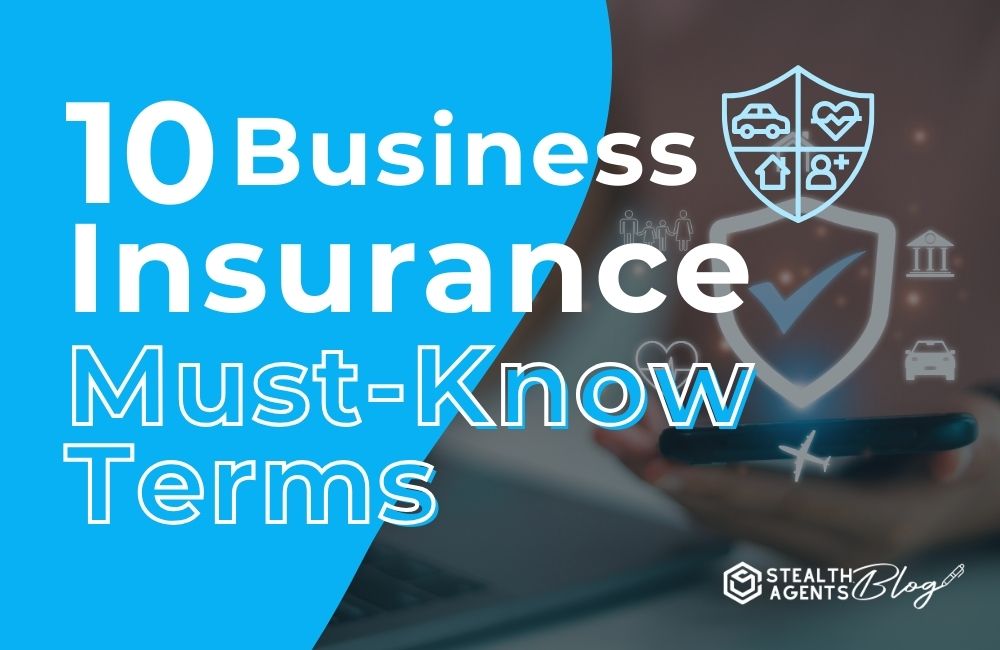When navigating the complex world of business insurance, understanding key terminology is essential for making informed decisions.
Whether you’re a seasoned entrepreneur or just starting out, being familiar with industry jargon can give you a significant advantage.
In this guide, we will explore ten must-know business insurance terms that every business owner should be aware of.
Additionally, if you find yourself overwhelmed with the intricacies of insurance management, you must hire a virtual assistant from Stealth Agents.
An insurance virtual assistant can help streamline your processes and ensure you stay compliant with the latest regulations.
Let’s dive in!
10 Business Insurance Must-Know Terms
- Policy – A policy is a contract between an insurance company and the insured entity, outlining the terms of coverage and payments for specific types of losses or damages.
- Premium – The premium is the amount of money that the insured pays to the insurance company in exchange for coverage outlined in their policy.
- Deductible – The deductible is the specified amount that the insured must pay out of pocket before their insurance coverage kicks in.
- Claim – A claim is a request made by the insured for payment or reimbursement for a loss covered under their policy.
- Coverage limit – The coverage limit is the maximum amount of money that an insurance company will pay out for a specific type of loss or damage, as outlined in the policy.
- Risk – In the context of insurance, risk refers to the likelihood of a loss or damage occurring that would result in a claim being made.
- Underwriting – Underwriting is the process by which an insurance company evaluates and determines the level of risk associated with insuring a particular entity or asset.
- Liability – Liability refers to legal responsibility for damages or losses, which can be covered by liability insurance.
- Exclusions – Exclusions are specific circumstances or events that are not covered under an insurance policy and for which no claims will be paid out.
- Endorsement – An endorsement is a change or addition made to an existing insurance policy that modifies the coverage or terms of the original contract.
Congratulations, you now have a better understanding of 10 important business insurance terms that are crucial for any business owner. Knowing these terms will not only help you navigate through the world of business insurance but also make informed decisions when it comes to protecting your business.










